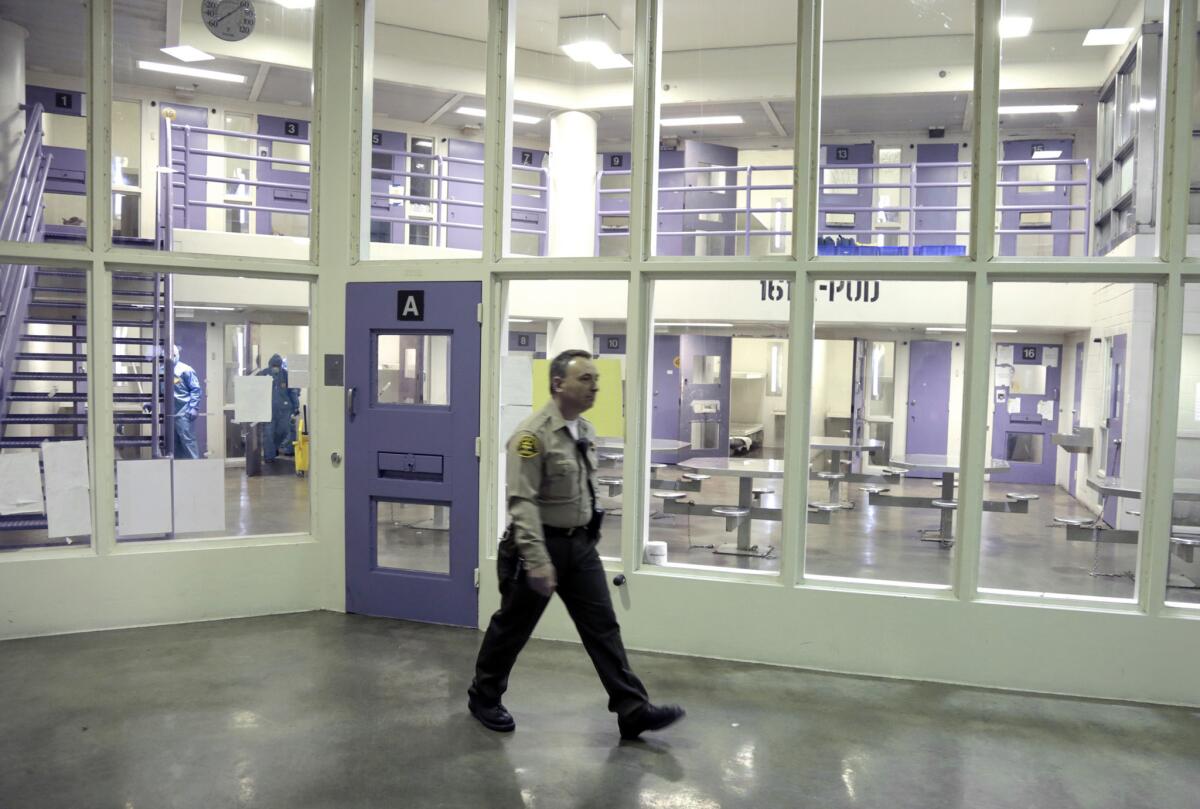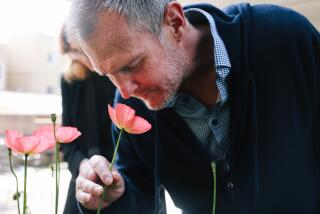Opinion: Mental illness was my family’s secret — and America’s great shame

In 2011, I began a professional and personal journey to understand my profession’s abandonment of our sickest patients. I had been trained as a psychiatrist at an Ivy League medical center on the East Coast. Like most of my colleagues in my generation, I did not end up treating those with schizophrenia and severe bipolar disorder. Also, like many people in my field, I had a personal connection to the disease that I kept to myself.
When I was 14, Merle, my beautiful and kind 20-year-old sister, developed schizophrenia. My older sister, Gail, eventually took Merle to the hospital in Philadelphia, our hometown. After two weeks of failed treatment, my parents promptly took her out.
To my working-class Jewish parents, Merle’s mental illness was a “shanda,” Yiddish for “disgrace,” something to be hidden and denied if it couldn’t be quickly and quietly fixed. Our secret isolated all of us from potential help in our community — none more than my sister. Merle never held a job, never made another friend, rarely left her bedroom, and was deluged by hallucinations and delusions.
When she was 26, Merle jumped out of her bedroom window, falling three stories onto our concrete driveway. She miraculously recovered physically, yet her relentless disease led to her death at the age of 55, not uncommon for people with a serious mental illness, who die an estimated 28 years earlier than the rest of the population.
In the final years, Merle fought me about accepting treatment and locked me out of the family house where she lived alone. Merle’s autopsy cited a heart attack as the immediate cause of death, with a breast cancer lesion, long undiagnosed and untreated, as secondary. But I knew the truth: What killed my sister was serious mental illness, complete with its accompanying shame, stubbornness, denial and confusion.
My family’s tragedy is an American tragedy. My family’s shame is America’s great secret. In this country, 1 in 5 families lives with a mental illness, according to the National Institute of Mental Health. Of that total, an estimated 11.2 million people age 18 or older have a serious mental illness, leading to some degree of devastating functional impairment. Our ignorance, shame and apathy led to deinstitutionalization starting in the 1950s, homelessness beginning in the 1980s and criminalization fully realized in the 21st century.
Our jails have become our de facto mental institutions. Of the approximately 16,000 people housed in Los Angeles County jails on any given day, about 25% of the men and 40% of the women need mental health treatment. The burden of caring for sick people has fallen on law enforcement.
In 2011, at the start of my seven-year inquiry into mental illness, I toured America’s largest mental institution, the Los Angeles County jail called Twin Towers in downtown L.A., the epicenter of this crisis. Like the rest of my family, I had kept Merle’s illness a secret from most of my colleagues and friends. But in 2011, I decided to tell the story of how we neglected our neediest citizens — and share the story of my sister.
In documenting today’s crisis, I’ve constantly wondered, what could have helped my sister?
Serious mental illnesses like Merle’s are not 100% curable, but they are eminently treatable. In fact, the earlier you intervene, the better. Psychotherapy, stress reduction, abstaining from substance abuse, healthy living and taking prescribed medications improve your chances of a better outcome.
Yet, one of the biggest challenges in getting Merle treatment was her anosognosia, the medical term for having an illness that interferes with your ability to know that you are not well. Whether it’s due to brain dysfunction, denial or stigma, not accepting you’re psychotic has enormous consequences, from inhibiting patients’ cooperation with treatment to leading them to barrel full steam ahead on irrational, often perilous journeys, as happened with my sister.
During the two times Merle was forced into the hospital, doctors and family members tried to circumvent her anosognosia with brief involuntary commitments and forced treatment. But forced treatment — which may include restraining a patient to a gurney, injecting them against their will and isolating them in cell-like isolation rooms — is brutal and disrespectful, and leads patients like Merle to distrust and avoid the medical system altogether.
Fortunately, a new generation of advocates and judges are developing approaches that aim to get people into treatment by using “therapeutic jurisprudence.” I wish they were available and known to me when Merle was sick.
Mental health courts, for example, can help divert people with psychiatric disorders who have committed a crime from jail to treatment. Assisted outpatient treatment can help those who struggle to adhere to treatment. The judges in these courts often reevaluate a patient’s progress every few months and collaborate with the treatment team for a range of services. Psychiatric advance directives, which are not court-directed, can be useful as well. These are written directives made by the patient about the kind of treatment she would want if she becomes too impaired to make decisions. All of these approaches are controversial and require considerable care to ensure that they are carried out humanely, respectfully and without undue coercion.
Merle also needed better medicine. The few times she was willing to take her medication, the side effects were terrible. Like 50% of the people prescribed medication for their mental health illness, Merle stopped taking her meds within one year.
Schizophrenia is one of the costliest diseases of our time, with an estimated annual social and economic cost of $155.7 billion. But in 2019, serious mental illness will receive about $452 million total in National Institutes of Health research dollars, an amount that pales in comparison to funding for diseases like cancer, which receives $6 billion, and heart disease, receiving over $1 billion. Not only is research into the etiology and treatment lacking, but as I saw with Merle, we lack hospital beds for those with serious mental illness. Today we have approximately 3% of the hospital beds per capita that we had in 1955 when deinstitutionalization began.
Over the last several years, I have documented the horrors of the mental health crisis, but I have also documented hope. I’ve witnessed how undeterred, unashamed and relentless advocacy can make the legal, medical and policy changes that will save future patients from enduring the same fate as my sister.
In Los Angeles County, a plan to build a new jail for those with mental illness was abandoned in favor of exploring community-based facilities to treat mental illness. While Los Angeles is still years away from a comprehensive plan and law enforcement continues to shoulder the responsibility for caring for sick people in outdated jails, the very fact that there is an open dialogue among all the stakeholders gives me hope that L.A. may soon become the epicenter of change.
Many nights, I still dream about Merle and my family, imagining a better outcome. While there is no Hollywood ending for us, something unprecedented is happening in Los Angeles and elsewhere.
I see Americans starting to grasp the human dimensions of this crisis. We are no longer willing to stand by helplessly as our family members get thrown away by society, without care, taking outdated medicines, living in cells or on the streets. We are no longer silent. And when I speak up about my sister, I am no longer alone.
Kenneth Paul Rosenberg is a psychiatrist and author of the forthcoming book “Bedlam.” He is also the producer and director of the documentary “Bedlam,” which will air on Independent Lens on PBS in April 2020.
More to Read
A cure for the common opinion
Get thought-provoking perspectives with our weekly newsletter.
You may occasionally receive promotional content from the Los Angeles Times.






